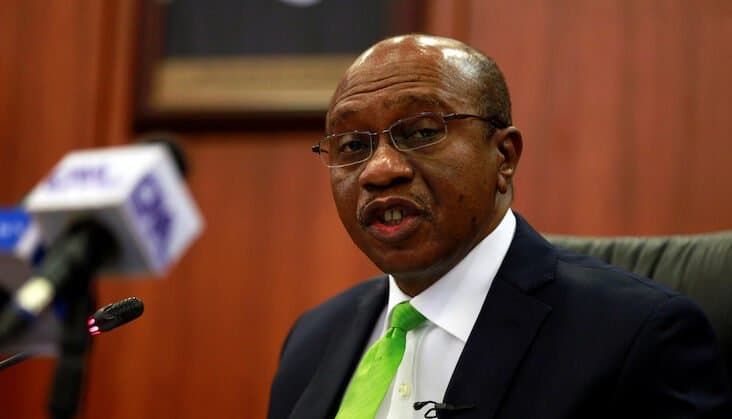Further from our discussion last week about the dire situation of the economy and the perennial balance of payment challenge for the economy, I will suggest that rather than Nigerians — be they bankers, importers, students, travellers, speculators, rich, comfortable, or from whatever walk of life — hassling and insulting the central bank for not being able to meet demands, what we need is sobriety.
We need to reflect on our excesses and under-productiveness. We need to understand that when it all comes crashing down, we have all contributed to the malaise. No one can be singled out for the shellacking. If you have indulged in any of those imported stuff — especially the luxuries — flown business and first class when you’re from a lazy, uninnovative country such as ours where we don’t know how to behave ourselves (especially those who do that on government funds), you are part of the problems.
Those in government, who have moved around with long convoys worth billions, are of course very mindless. Even the president and his vice are guilty. Is it that they did not know the extent of the problem? Couldn’t they have figured it out themselves? Is this not why all we can do is borrow? And the same type of people I described above will come and tell us ‘borrowing is good’. No, borrowing is NOT good when you produce nothing that is worthwhile.
These were some of the thoughts I wanted to share at the banker-studded event. I may have ended up giving a lecture and being kicked off the lectern anyway. But I learnt some things. And I will suggest others:
- It had escaped me that as a service-oriented country (where 52 per cent of our GDP is contributed by services), the bulk of the value of the services we provide cannot be tracked back to Nigeria e.g. our music and movie industries. If a Nigerian musician lists on say spotify, Nigeria as a country may not see any of the proceeds. It may remain abroad except the musician brings a little home. Same for listing on Youtube and the rest. When our musicians play abroad in their ‘sold-out’ concerts, I know that their promoters have arranged accounts in tax-free countries like the British Virgin Island, Caymans, Mauritius, etc, into which their own share (usually a tiny fraction) is paid. Again Nigeria loses out. So, the service industry is not delivering for Nigeria.
- From my research before the programme, I was able to categorise services (which now account for 55 per cent of the global economy and 45 per cent of employment), into those that could be directly sold by Nigeria- hoteling and tourism, IT expertise, online services like teaching, consultancy of all types, banking and electronic payment services and so on. Again, like in 1 above, a lot of these are run by very smart people who ensure the money stays abroad. Tracking of proceeds is, therefore, a major problem for Nigeria. The other services are the indirect ones – based on innovation – which add value to the hard exports that we have, like the cash crops. These value-adding services include banking and finance (where they can lend to farmers and producers to boost capability), insurance (which help local businesses to hedge risk), packaging, product design, marketing and branding, technologies of different kinds. These value adding services are very critical if Nigeria must get some dollars in from the rest of the world rather than remain on the backfoot as a raw products exporter forever. Remember that countries like China are now planting their own cassava en masse, and we are getting left out on the cocoa and palm oil fields. We should actually curb or ban the cheap export of raw crops, but the super foreign companies involved will never agree. Still, we must try.
- We may have to be harder on ourselves. We may have to increase the number of goods for which the CBN does not provide hard-to-find dollars. Currently, we have 43. We are simply in deep trouble. We must find ways of bootstrapping ourselves and forcing ourselves to produce more of everything we need. Looked at in a different light, we may have arrived at a great time of opportunity. We may also go round the world scouting for companies which are brave enough to come and produce here, while we actively recruit young Nigerians to experiment with their ideas and help them mainstream. We don’t need MSMEs who are merely importing goods for resale. We need them to produce here, using Nigerian materials. Foreign goods will have to cost a lot more to give opportunity to local producers. Tax authorities must be more active in targeting luxury consumers.
- From my own analysis, since we are stuck with a bad subsidy problem, and now that we are under pressure from the multilateral agencies to devalue AND deregulate at the same time, we have to be wise. If we took their advice, we would have ingested economic and social snipers. The combo of these two policies is deadlier than SAP which sent us on a spin since 1986. This is why I was very opposed to the Osinbajo presidency. He had bought their line, hook, line and sinker. We actually have no choice than to stay our hand on deregulation of petrol. It is bad enough that people now have to pay N800 – N850 for diesel and N12,500 for a 12.5kg can of cooking gas. We dare not deregulate petrol now, as it is literally a volatile issue. But if we work on curbing excessive importation, encouraging local production, retooling our textile sector, we may be able to localise our issues, ensure money flows within the country, balance out the inflation issue by at least ensuring money flows locally, and eventually, cause a revaluation of the naira, after which we may deregulate.
I wish Governor Emefiele the best as he dares these problems. The opposition —internally and externally will be as solid as the north wall of Westeros. I wondered why Emefiele wanted to be president. Now, I think maybe he wanted to see how he could cause this shock therapy that Nigerians need. It couldn’t have been just to make more money. Anybody thinking of more money in Nigeria today, in a sinking economy, is on a long thing, as they say on our streets. All hands must be on deck to do the painful things required to get this country defibrillated. Her heart has stopped presently.

 Join Daily Trust WhatsApp Community For Quick Access To News and Happenings Around You.
Join Daily Trust WhatsApp Community For Quick Access To News and Happenings Around You.


